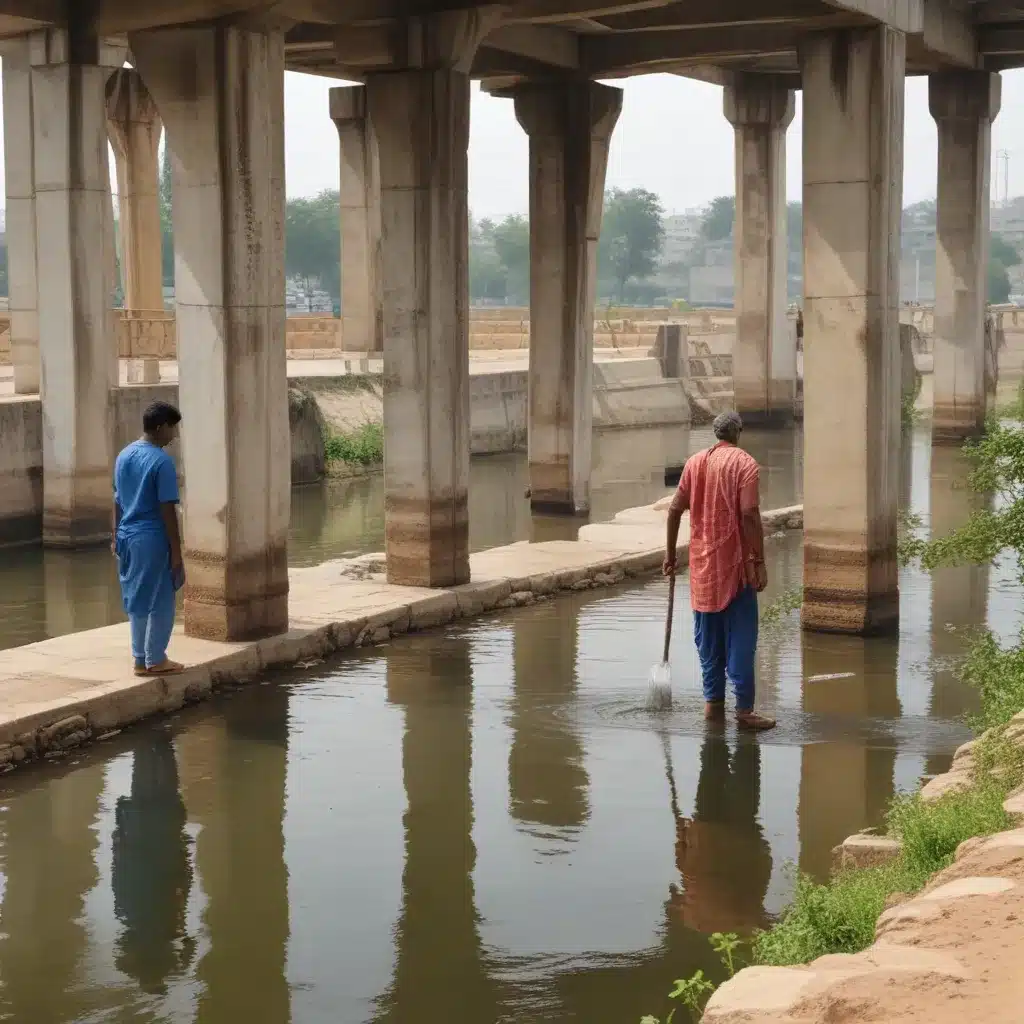
Tackling the Challenges of Water Access and Quality
Hyderabad, the vibrant capital of Telangana, is home to a diverse population of over 10 million people. As the city continues to grow and develop, the issue of water quality and access has become increasingly pressing. Despite the existence of several water management policies and initiatives, the ground reality often paints a different picture, with many communities still struggling to secure clean and reliable water supplies.
This article delves into the complexities of Hyderabad’s water landscape, exploring the gaps between policy and practice, and highlighting the critical role that community engagement and advocacy can play in bridging these divides.
Understanding Hyderabad’s Water Landscape
Hyderabad’s water supply is primarily sourced from the Osmansagar and Himayatsagar reservoirs, as well as the Manjira and Manjeera rivers. However, the city’s rapid urbanization and industrial growth have placed immense pressure on these water resources, leading to issues of water scarcity, pollution, and unequal distribution.
Table 1: Key Water-related Challenges in Hyderabad
| Challenge | Impact |
|---|---|
| Water Scarcity | – Insufficient supply to meet the growing demand – Erratic water availability, especially during the dry season |
| Water Pollution | – Contamination of surface and groundwater sources – Untreated industrial and domestic waste discharge |
| Unequal Distribution | – Disparities in water access between affluent and marginalized communities – Lack of reliable water supply in low-income and informal settlements |
To address these challenges, the Telangana government has implemented various policies and programs, such as the Hyderabad Metropolitan Water Supply and Sewerage Board (HMWSSB) and the Atal Mission for Rejuvenation and Urban Transformation (AMRUT) initiative. However, the implementation and effectiveness of these measures have often fallen short of the desired outcomes.
Bridging the Gap: Community Engagement and Advocacy
One of the key strategies to overcome the water quality and access challenges in Hyderabad is to strengthen community engagement and advocacy efforts. By empowering local communities and fostering collaborative partnerships, the gap between policy and practice can be narrowed, leading to more effective and sustainable water management solutions.
Engaging with Local Communities
Engaging with local communities is crucial in understanding the unique water-related challenges they face and developing tailored solutions. This can be achieved through various means:
- Community Needs Assessments: Conducting comprehensive assessments to identify the specific water and sanitation needs of different neighborhoods, including marginalized and informal settlements.
- Participatory Planning: Involving community members in the decision-making process for water infrastructure projects, ensuring their voices are heard and their priorities are reflected.
- Capacity-building Workshops: Organizing workshops and training sessions to educate community members on water conservation, water quality testing, and maintenance of local water systems.
By actively engaging with local communities, policymakers and water authorities can gain a deeper understanding of the ground realities and address the unique challenges faced by different neighborhoods.
Fostering Advocacy Efforts
Advocacy plays a crucial role in bridging the gap between water policies and their implementation. Leveraging the power of community-driven advocacy can lead to more effective and equitable water management practices.
- Collaborative Partnerships: Encouraging the formation of community-based organizations and non-governmental organizations (NGOs) to work alongside water authorities and policymakers, providing a platform for grassroots voices.
- Transparent Information Sharing: Ensuring that water-related data, policies, and decision-making processes are made accessible and understandable to the public, promoting transparency and accountability.
- Amplifying Voices: Supporting and amplifying the voices of marginalized communities, empowering them to advocate for their water rights and hold authorities accountable.
Through robust advocacy efforts, communities can hold policymakers and water providers accountable, ensuring that water management policies are translated into tangible improvements in water access and quality.
Innovative Solutions for Sustainable Water Management
Alongside community engagement and advocacy, Hyderabad is also exploring innovative solutions to address its water challenges. These efforts showcase the potential for bridging the gap between policy and practice, paving the way for more sustainable water management.
Decentralized Water Treatment Systems
One innovative approach is the implementation of decentralized water treatment systems, which can be tailored to the needs of specific communities. These systems, often powered by renewable energy sources, can provide localized solutions for water purification and distribution, reducing the burden on the city’s centralized water infrastructure.
Rainwater Harvesting and Groundwater Recharge
Recognizing the importance of water conservation, Hyderabad has initiated programs to promote rainwater harvesting and groundwater recharge. By incentivizing the installation of rainwater harvesting systems in homes and commercial buildings, the city aims to augment its water supply and mitigate the impact of water scarcity.
Wastewater Recycling and Reuse
Hyderabad has also made strides in the area of wastewater management, with the implementation of water recycling and reuse initiatives. By treating and repurposing wastewater for non-potable applications, such as landscaping and industrial processes, the city is reducing its reliance on freshwater sources and promoting a more circular approach to water management.
These innovative solutions, combined with effective community engagement and advocacy, hold the potential to transform Hyderabad’s water landscape, bridging the gap between policy and practice.
Conclusion: The Way Forward
Hyderabad’s water challenges are multifaceted, requiring a holistic and collaborative approach to achieve sustainable solutions. By empowering local communities, fostering effective advocacy efforts, and implementing innovative water management strategies, the city can work towards ensuring equitable access to clean and reliable water for all.
As Hyderabad continues to evolve, the lessons learned and the successes achieved can serve as a model for other cities in India and beyond, inspiring a movement towards more sustainable and inclusive water management practices. Through collective action and a shared commitment to water stewardship, Hyderabad can pave the way for a future where water security and quality are no longer a distant dream, but a tangible reality for all its residents.
To learn more about the Joint Action for Water initiative and explore other water-related resources, please visit https://jointactionforwater.org/.

